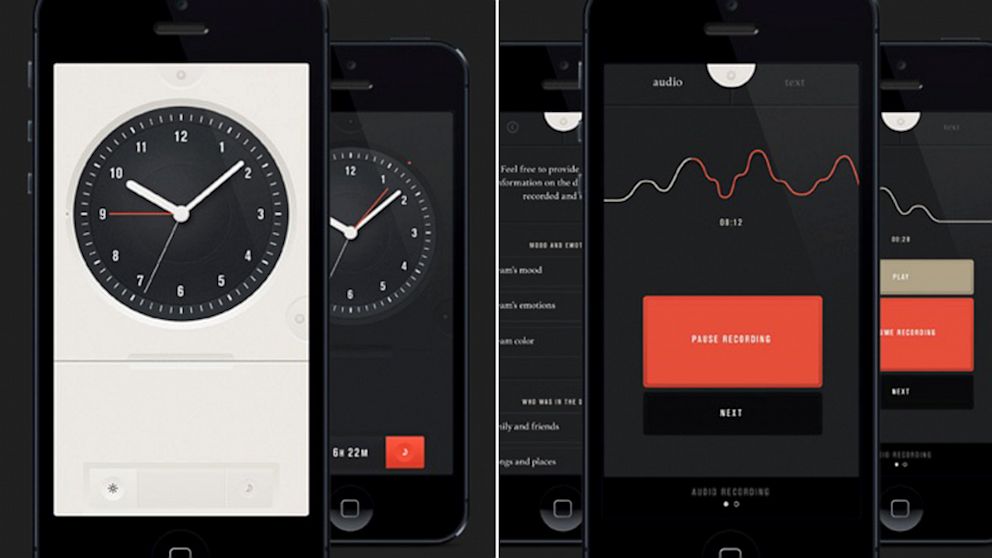Shadow App Wants Your Money So You Can Explore Your Dreams
A New York start-up has brought its dream app to Kickstarter.

Sept. 17, 2013 — -- "In Xanadu did Kubla Khan/A stately pleasure-dome decree..."
They are the haunting lines from Samuel Taylor Coleridge's much-lauded poem, Kubla Khan, and it is widely believed he wrote them upon awaking from a vivid dream.
Coleridge's famous lines remind us of the potential a dream may contain, but in many cases we don't write them down or we simply forget them. What if everyone could remember and record what we saw in our dreams? Would we, like Coleridge, find material for great art? And what might we learn about ourselves?
These are the kinds of questions Hunter Lee Soik began asking himself over a year ago, when he began to develop the Shadow, a mobile app that enables you to record and store your dreams.
Soik launched a campaign today through the crowd-funding site Kickstarter to raise money to finish building the mobile app. With a $50,000 goal in mind, Soik said he is offering users the opportunity to put money toward Android, iOS or Windows apps. Once Soik reaches his funding goal, he and his team, which includes co-founder and technology entrepreneur Jason Carvalho and creative director Raf Stuken, will build Shadow first for whichever platform has the most funds.
"We're trying to find a way to make the invisible visible," said Soik, a former creative consultant for brands such as Stella McCartney, Vitra and the CFDA Awards.
Dreams are an untapped source of information and finding a way to record and store them could help people learn more about themselves, Soik said.
The idea for Shadow emerged after Soik worked on Kanye West and Jay-Z's "Watch the Throne" tour. Soik took a short break after the tour catching up on some much-needed rest. In doing so, he started thinking about dreams and if there were a way he could create an application that would capture and store them so that he could begin to see patterns or themes.
While developing the application, he reached out to experts such as Deidre Barrett, a clinical psychologist from the Harvard Medical School, and Umberto Leon Dominguez, a researcher in experimental psychology, to learn as much as he could about the science behind sleep and dreams.
Soik demonstrated an early build of the app to ABC News. You set the alarm by swiping the hands on the clock face, and then select how you want to record your dreams, either through text or audio. The alarm goes off with an escalating volume, allowing you to gradually awake from sleep. From there, pull down from the alarm screen and start recording your dream by writing it down or speaking it aloud. The app will transcribe your dream, pull out key words, and upload the information to the cloud.
Shadow isn't the first dream app -- there are others like Dream:ON and DreamZ -- but Soik said some of the advantages to Shadow could include helping people understand how much they do or do not sleep, what they dream about, and what others around the world might be dreaming about, too.
In May, Soik and his team launched Shadow's website, providing users with the ability to sign up for an email list as a way to keep people informed about the process. Within a month, the website received a quarter-million unique page views and over 25,000 people signed up for the email list.
For the moment, the application remains in beta, though Soik said some features will include the ability to group data based on topics, location and user information such as age and gender. The app will let users store the information privately or share it with groups of people. Another potential feature would be the ability for people to participate in sleep studies through push notifications, Soik said.
Dreams are as intangible as our own shadows, momentary and impossible to hold onto. But Soik said he hopes his application will allow people to retain those elusive visions by providing them with a tool to record them and a repository of under-explored data.




